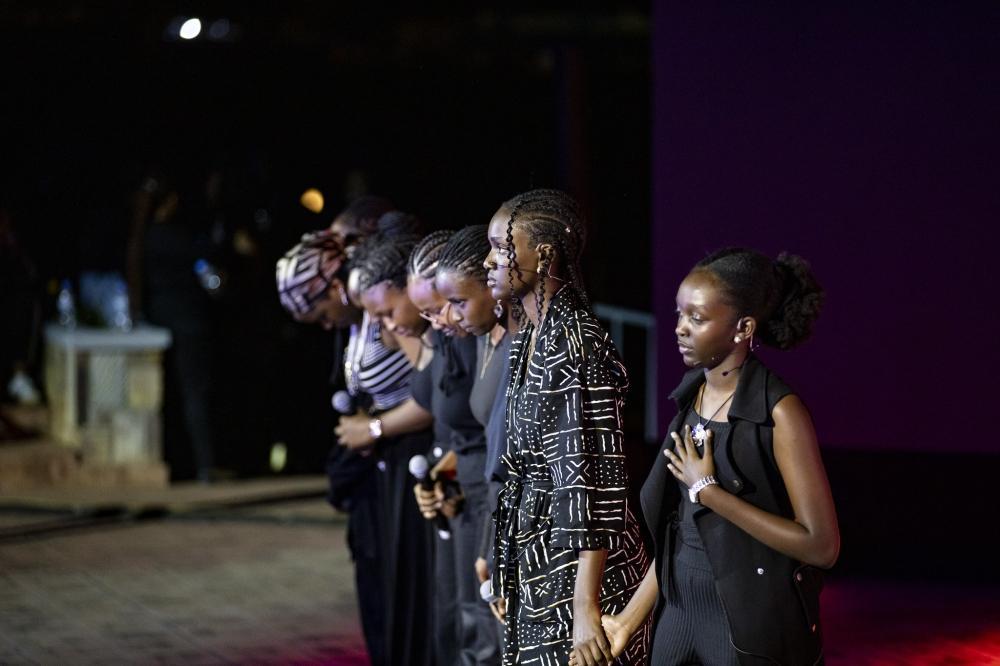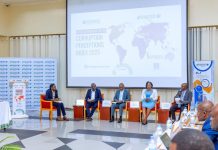Africa-Press – Rwanda. Young people in Rwanda and in the diaspora should understand that the fight to uphold the country’s safety, dignity, and development trajectory, may not necessarily involve guns on the battlefield but is a war against misinformation and disinformation, according to experts.
The resolve to set the record straight with truth and facts amidst the seemingly unending spread of genocide denialism and extremist views on the 1994 Genocide against the Tutsi in Rwanda, has seen survivors, the youth, officials, scholars, and others, engage through different initiatives, leverage social media platforms and literature to continue the fight 31 years later.
While denialism –the final stage which involves covering up the crimes, blaming victims, and downplaying the genocide’s scale and intent –has taken various forms and has been rampant throughout years, it becomes most prevalent during the commemoration period, rubbing salt in survivors’ wounds.
In a space conversation hosted by The New Times on X that focused on the Diaspora’s role in rising anti-Rwanda campaigns, Félicité Lyamukuru, the President of Ibuka Memoire et Justice, in Belgium, said genocide survivors are always startled by revisionists’ comments, and politicians who use rhetoric questions on Rwanda’s history and the very tragic events they went through.
She said: “What pains the most about the Genocide, beyond the atrocities of the past, seeking strength to survive through the present and build a future, is the denialism that one has to face. We fought to survive the Genocide and we still fight on a daily basis against such.”
While the majority of the survivors are not vocal in the fight, mainly because of the trauma and inability to put into words the most painful and profound tragic experiences they had, some of them have mustered the courage to speak up and their descendants are carrying on the fight.
The fight against genocide perpetrators at large, as well as their descendants who are involved in spreading ideology, denialism, and revisionism, continues.
According to Michael Butera, the Chief Technical Advisor at the Ministry of Justice, the drive behind all the anti-Rwanda campaigns is that the commemoration period holds a mirror to a world full of guilt. He noted that some countries, institutions, and individuals carry the historical guilt because of their inaction, complicity, or even worse, defeat because they hoped Rwanda wouldn’t survive the 1994 Genocide but it did.
However, with this guilt, he said, “those on the wrong side of facts and truth, are more aggressive, painfully invested, organized and popular with their lies and hateful campaigns than us with powerful tools of facts and evidence on our disposal.”
He said people need to have a conceptual clarity that there is intentionality when there is ignorance detected in numbers, statistics, narration of specific events and tilted truth, as deniers know exactly what they are doing.
Linda Melvern, a British investigative journalist and author who has written books about the 1994 Genocide, said that there are some shocking documents at the UN archives written in 1994 revealing how the denial campaign was waged by diplomats and, for 31 years, the same campaign has used distortion, deception, and disinformation to deny the crime.
She said: “It is a universal campaign and I have watched it develop for 31 years. The perpetrators of this genocide were experts at fake news before the phrase even became popular in the West.”
She noted that the disinformation upon which these claims are based can easily be discarded with widely available resources, material evidence collected over years and testimonies in courts.
Melvern said truth seekers should respond with dignity and with facts at hand.
“We must seek out facts, check and be sure of them, learn which sources to trust, compile materials. You will know the deniers; they must be challenged.”
Educating oneself on Rwanda’s history
Unfortunately, there are many young people who can’t connect the dots of historical facts and the events that led up to the 1994 Genocide, which makes it easy for anyone to benefit from those blurry lines and deliberately distort the truth, said Butera.
“Educating yourself is very important, as well as coming up with a system of constantly pushing back against false narratives.”
While it requires an extra effort, he noted that it is equally important to not just stop on activism and invest time and systemic effort to feed the right information to Artificial Intelligence as a technology driving the world but which is being currently abused to advance genocide denial.
For people familiar with AI, it is regrettable that it is more prone to generate scripts of denialism when prompted with the word Tutsi, Butera said, stressing that it necessary to use AI to populate the facts and truth on the internet.
He added: “Let’s try to use both the hard and soft accountability measures to really disrupt this momentum. It can be legal or community standards of these platforms.”
Lyamukuru said that it is through the different genocide commemoration initiatives with young people at the forefront, that survivors draw strength and hope for the future of “Never Again.”
For More News And Analysis About Rwanda Follow Africa-Press






